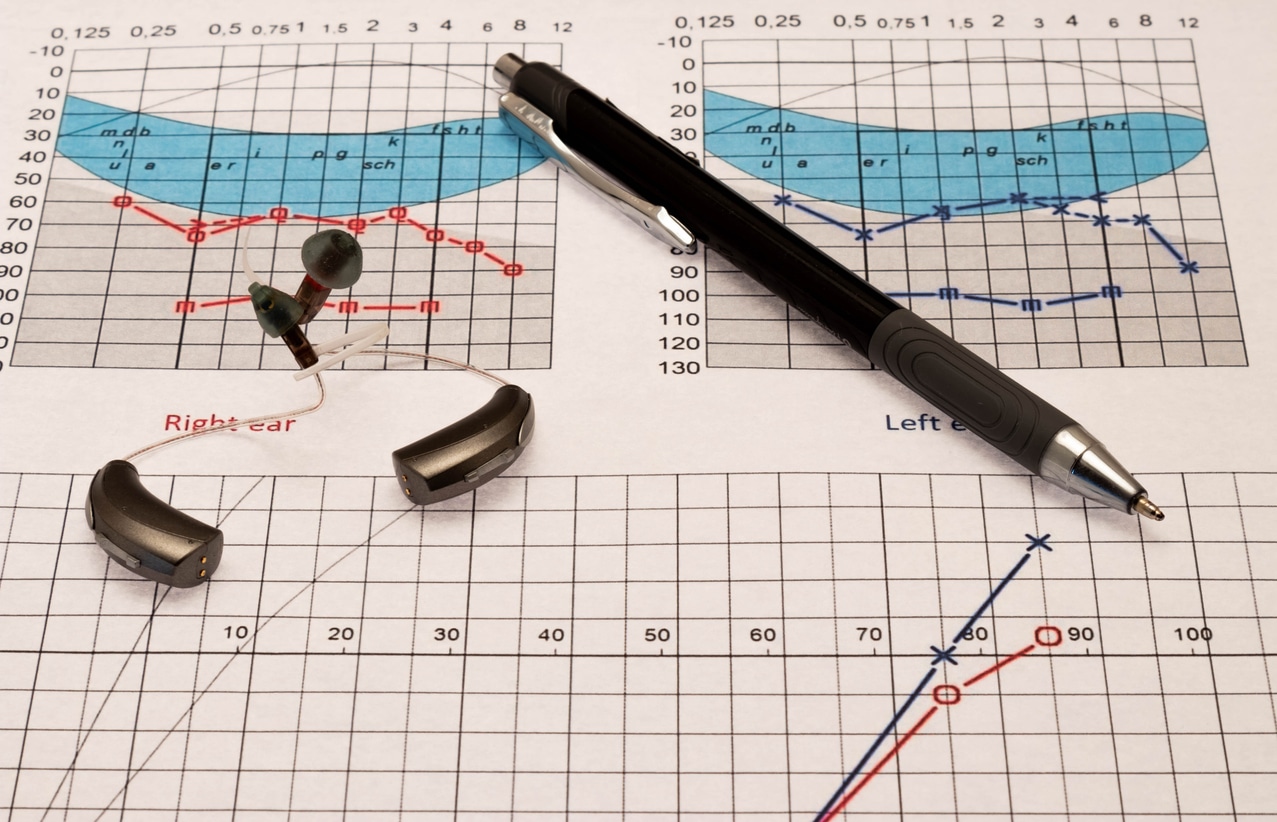When most people consider solutions for hearing loss, hearing aids are often the first option that comes to mind, and for good reason. These devices are highly effective, with 28.8 million Americans standing to benefit from their use.
However, hearing aids are just one part of a broader spectrum of tools that can enhance hearing and improve communication in everyday life.
By understanding the full range of available technologies, you can make more informed decisions that suit your hearing needs, lifestyle, and comfort level with various devices.
Hearing Aids: The Primary Tool for Amplification

Hearing aids are small, wearable devices that either fit in the ear canal or rest behind the ear. Their main function is to boost sound volume and clarity, helping users better understand speech and surrounding noises.
Today’s models offer a variety of high-tech features, such as:
- Bluetooth® compatibility for streaming audio from phones, TVs, and other devices
- Rechargeable batteries that eliminate the need for constant replacements
- Advanced noise reduction to help filter out unwanted background sounds
- Directional microphones to better focus on the voices in front of you
With a variety of form factors and custom-fit options, hearing aids can be adapted to match your specific hearing profile and style preferences.
Assistive Listening Devices: Targeted Support in Specific Settings
Even with high-performing hearing aids, some environments, like large rooms or noisy gatherings, can still pose challenges. That’s where assistive listening devices (ALDs) come into play. These tools enhance sound in situations where clarity and distance are issues.
Popular ALDs include:
- Personal sound amplifiers: Simple handheld devices that enhance nearby conversations
- FM systems: Often used in classrooms, these send a speaker’s voice directly to a listener’s receiver using radio waves
- Induction loop systems: Installed in venues such as churches or theaters, they transmit sound through magnetic fields to compatible hearing aids with telecoil (T-coil) functionality
- Bluetooth® streamers: These let you wirelessly connect to media devices, delivering sound directly to your hearing aid or cochlear implant
These tools can make a significant difference in large or challenging acoustic spaces.
Visual and Text-Based Alerts: Enhancing Communication Without Sound
Hearing support doesn’t always come in the form of amplified sound. Some devices translate audio cues into visual or tactile signals to aid communication and ensure safety.
Examples include:
- Captioned telephones: These display the written text of your phone conversations in real time
- Visual alert systems: Flashing lights or vibrating alarms notify you of doorbells, phone calls or emergency alerts like smoke detectors
- TV captioning tools: Real-time subtitles or dialogue-enhancing audio settings help make television content easier to understand
These devices can be particularly helpful in the home and for individuals with profound hearing loss.
Advanced Medical Solutions: Cochlear and Bone-Anchored Implants
For those whose hearing loss cannot be adequately managed with standard hearing aids, surgical alternatives may offer better outcomes.
These include:
- Cochlear implants: Implanted devices that bypass damaged areas of the inner ear to stimulate the auditory nerve directly
- Bone-anchored hearing systems (BAHS): These transmit sound through bone conduction, making them suitable for certain types of conductive or single-sided hearing loss
Because these are more complex interventions, they require assessment and guidance from a qualified hearing specialist.
Choosing the Right Hearing Solution
Finding the most suitable device involves more than understanding your hearing loss; it also requires a close look at your lifestyle, communication preferences and comfort with technology.
Consider:
- The severity and type of your hearing loss
- Where and how you typically engage in conversation
- Your ability or desire to manage different types of devices
- Whether convenience, sound quality or discreetness is most important to you
Partnering with a hearing specialist is the best way to match the right technology with your unique needs. If you’re ready to explore hearing aids or other advanced hearing support options, contact Certified Hearing Aid Consultants today to schedule your customized evaluation.